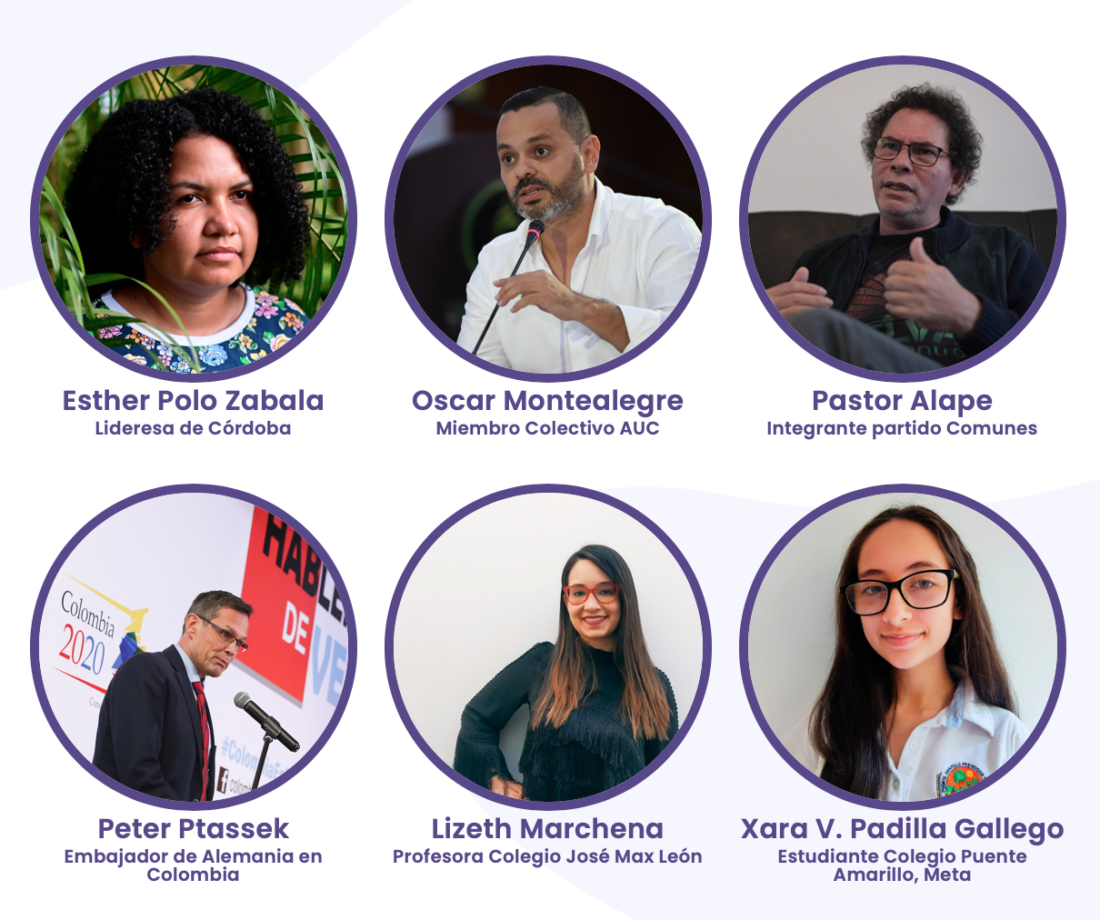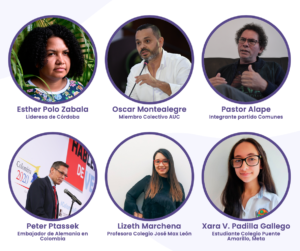
The third “Let’s talk about truth in schools” meeting: online and open to the public

Invitados/Guests
A third and final dialogue in this cycle on why it is important to talk about the truth about what happened in the armed conflict in schools was held on Thursday, April 29, 2021. “Let’s talk about truth in schools”, a space for active listening and participation, was, for the first time, open to the public, and broadcast live on the El Espectador Colombia2020 YouTube channel.
The opening address was given by CAPAZ Director Prof. Dr. Stefan Peters, and interventions were by the German Ambassador to Colombia, Dr. Peter Ptassek, Esther Polo Zabala, a social leader from Córdoba; Lizeth Marchena, a teacher at the José Max León school in Bogotá; Xara Valeria Padilla, a student at the Puente Amarillo school in Meta; Pastor Alape, representative of the Comunes Party and former leader of the demobilised FARC-EP guerrilla; and Óscar Montealegre, former commander of the Central Bolívar Bloc of the United Self-Defence Forces of Colombia and member of the AUC Collective.
“Let’s talk about truth in schools”
Two private meetings preceded the final event that was broadcast to the public. On both occasions, more than 300 high school students from Bogotá, Norte de Santander and Meta talked with actors of the armed conflict and leaders of change processes. These experiences served as a starting point for the final reflection on April 29, 2021. The highlight of the whole exercise was the chance that the students had to converse with visible voices that were formerly involved in armed conflict or those who are leading peacebuilding processes. A dialogue on the truth about the conflict was established through questions formulated by the youngsters motivated by their interests, knowledge and concerns. Prior work with the students in the classroom on the topics related to the meetings was key to generating an atmosphere of confidence to participate in spaces that were not biased, polarised or stigmatising. The accompaniment of the educational community in the school environment, on the one hand, and that of the families in the private environment, on the other, has also been crucial to these meetings. The pilot project is an initiative of El Espectador Colombia2020, with the support of CAPAZ and Universidad Pedagógica Nacional.
You may also like: information on the second meeting in Meta / Information on the first meeting
(NW: Claudia Maya. English: Tiziana Laudato)



